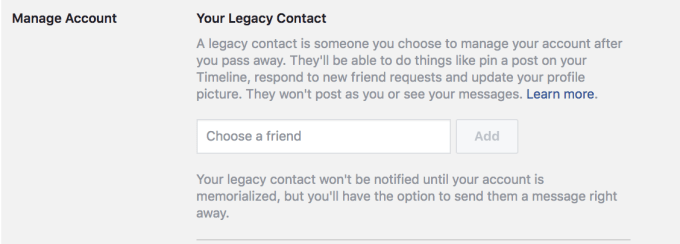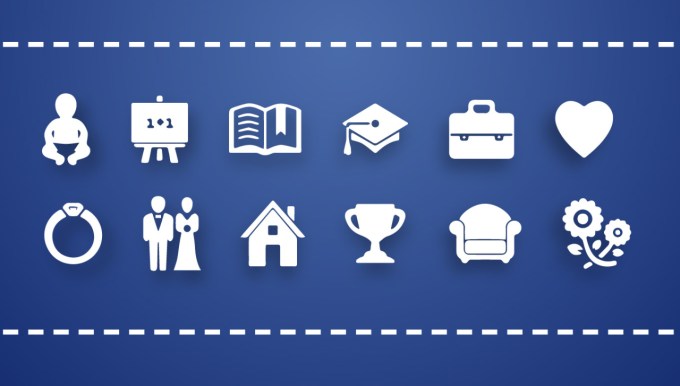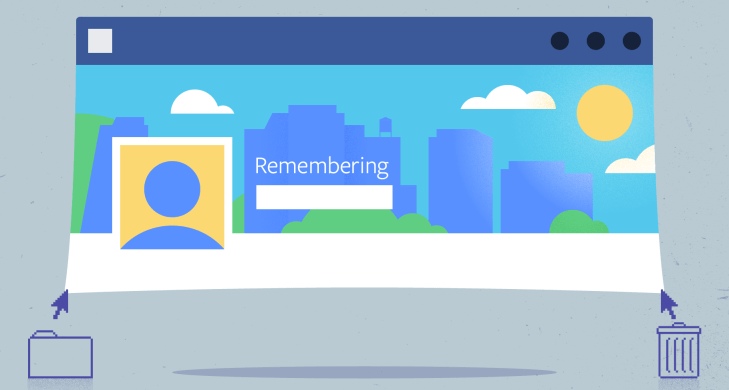Should your parents be able to read your Facebook messages if you die? Facebook explained why it won’t let them in a post in its Hard Questions series today about social networking after death.
Facebook admits it doesn’t have all the answers, but it has come up with some decent solutions to some issues with what it calls Memorialized Profiles and a “Legacy Contact.” When you pass away, once Facebook is informed, the word “Remembering” appears above your name on your profile and no one else can sign in to your account.

The Legacy Contact is a friend you select in your Manage Account Settings while you’re still alive, though they’re not informed until your profile is memorialized. They can pin a post atop your profile, change your profile pic, respond to friend requests or have your account removed. But Facebook explains they can’t log into your account, change or delete old posts, remove friends or read your messages.
Similarly, Facebook won’t allow parents or anyone else to read your messages after you die. That’s because “In a private conversation between two people, we assume that both people intended the messages to remain private,” writes Monika Bickert, Facebook’s Director of Global Policy Management. The Electronic Communications Privacy Act and Stored Communications Act may also prohibit it from sharing private communications even with parental consent.
Facebook also tries to minimize the emotional impact of losing a loved one by no longer sending birthday reminders about writing on their wall. But there are still plenty of opportunities for hurt feelings. Facebook’s On This Day feature and others can surface old content from when that person was still alive, creating an unexpected experience of having to think about their death.

The company has built features to enhance empathy with its users, allowing them to avoid unnecessarily seeing their exes on the app after a break-up. But it’s tough to know what will be a sweet nostalgic reminder and what will be a heart-wrenching spiral into the past.
What’s important is that Facebook is at least thinking and talking about these issues. Now at 2 billion users, Facebook has become a ubiquitous utility that impacts every phase of our lives. “There’s a deep sense of responsibility in every part of the company,” says Facebook CPO Chris Cox. “We’re getting to the scale where we have to get much better about understanding how the product has been used.”
